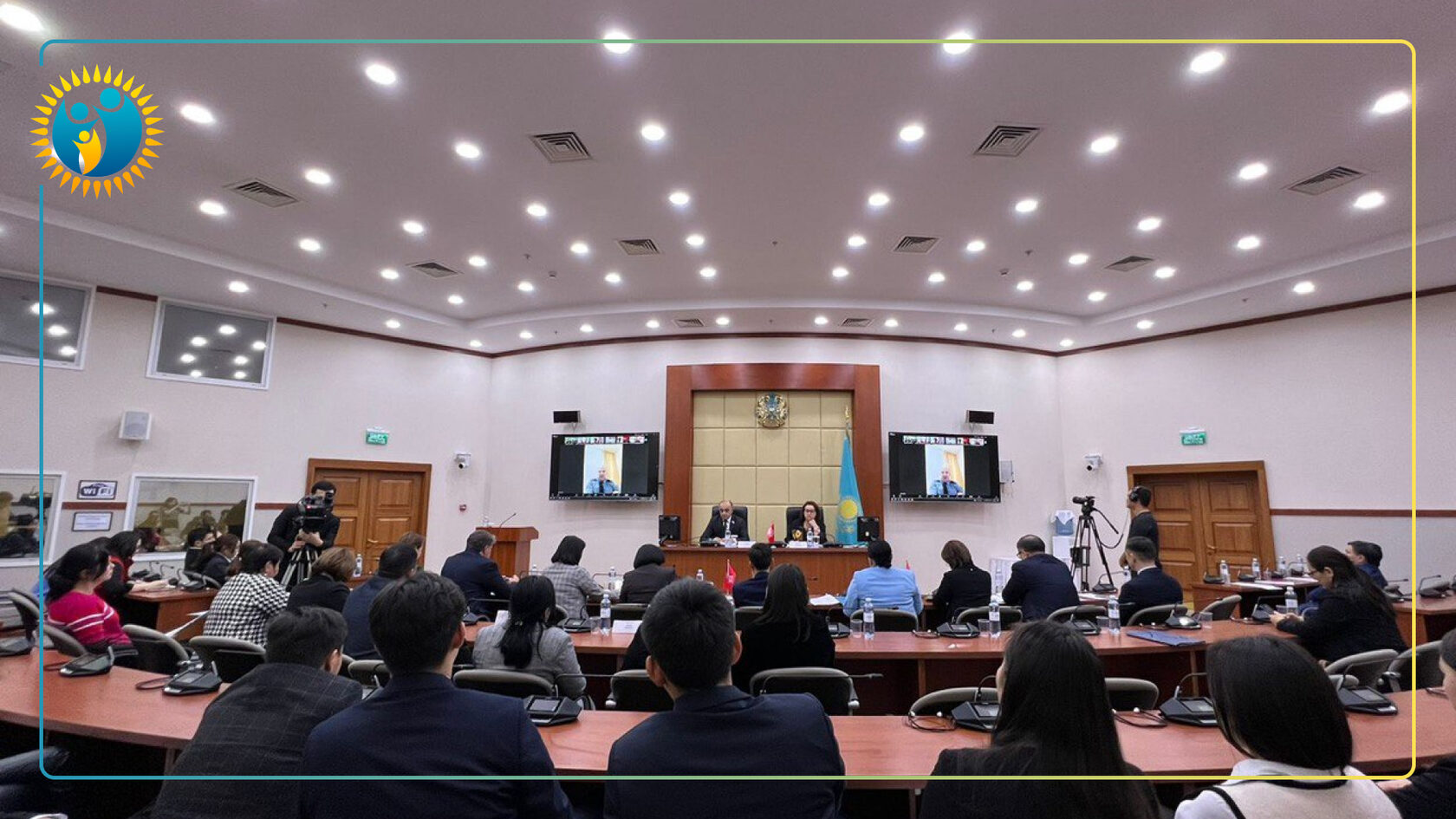On November 12, 2024, the Majilis of the Parliament of the Republic of Kazakhstan hosted a round table on “Safe School” organized by the People’s Party of Kazakhstan. The event was attended by representatives of state bodies and members of the National Commission for Women Affairs, Family and Demographic Policy under the President of the Republic of Kazakhstan — Renat Zulkhair and Gulnar Umarova.
In his speech, Renat Zulkhair focused on issues of anti-terrorism security in educational institutions and road safety for children. The speaker highlighted that the Ministry of Internal Affairs, in cooperation with relevant state bodies, is actively working to ensure security in educational institutions. In 2024, 10,371 educational facilities were inspected for compliance with safety standards, and a number of violations were identified, which require a systematic approach to address. Zulkhair also emphasized the importance of road safety for children, noting an increase in road accidents involving children this year. To address these incidents, regional plans have been developed to improve road infrastructure near educational institutions.
Gulnar Umarova, speaking on “Safety in Schools,” underscored that school safety encompasses not only protection from physical threats but also a comprehensive system of measures aimed at ensuring psychological, informational, and social security. She stressed the importance of preventing bullying, providing psychological support, safeguarding students’ personal data, and enhancing cybersecurity. Umarova also raised the issue of ideological security, citing a recent incident in the Zhambyl region, where a school administration invited a healer to work with students. This case, she noted, illustrates the need for careful oversight of educational program content.
Additionally, Gulnar Umarova proposed establishing a Children’s Rights Protection Agency under the Presidential Administration, with regional offices to ensure more effective monitoring of child safety and welfare. She emphasized that an independent structure would allow for swift and efficient responses to complaints and appeals concerning children’s rights.
In his speech, Renat Zulkhair focused on issues of anti-terrorism security in educational institutions and road safety for children. The speaker highlighted that the Ministry of Internal Affairs, in cooperation with relevant state bodies, is actively working to ensure security in educational institutions. In 2024, 10,371 educational facilities were inspected for compliance with safety standards, and a number of violations were identified, which require a systematic approach to address. Zulkhair also emphasized the importance of road safety for children, noting an increase in road accidents involving children this year. To address these incidents, regional plans have been developed to improve road infrastructure near educational institutions.
Gulnar Umarova, speaking on “Safety in Schools,” underscored that school safety encompasses not only protection from physical threats but also a comprehensive system of measures aimed at ensuring psychological, informational, and social security. She stressed the importance of preventing bullying, providing psychological support, safeguarding students’ personal data, and enhancing cybersecurity. Umarova also raised the issue of ideological security, citing a recent incident in the Zhambyl region, where a school administration invited a healer to work with students. This case, she noted, illustrates the need for careful oversight of educational program content.
Additionally, Gulnar Umarova proposed establishing a Children’s Rights Protection Agency under the Presidential Administration, with regional offices to ensure more effective monitoring of child safety and welfare. She emphasized that an independent structure would allow for swift and efficient responses to complaints and appeals concerning children’s rights.
